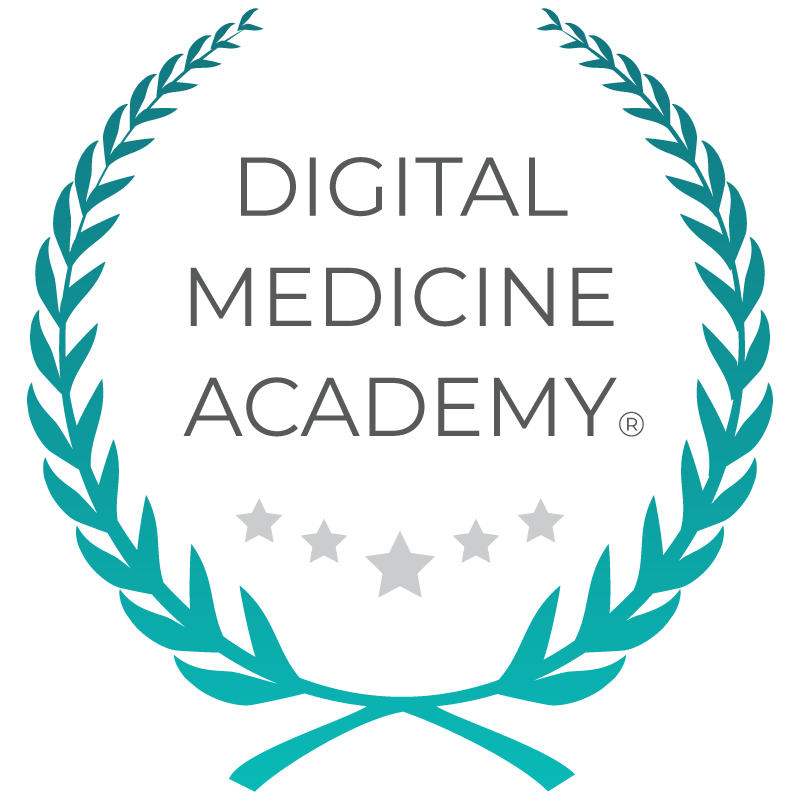
How Can Digital Data and Technologies Improve Health?
With a little help. Here’s a quick update on what DiMe is working on.
On Monday, December 16, DiMe submitted a letter in response to the request for input on the initial vision for Cures 2.0 legislation proposed by U.S. Reps. Diana DeGette (D-CO) and Fred Upton (R-MI).

The 21st Century Cures Act, known as “Cures”, became law in 2016 to modernize the U.S. healthcare system. This broad, bipartisan bill included provisions to advance precision medicine and speed up the development of new medical products, including through the use of real-world evidence in regulatory decision making. Cures included support and funding for developing preventative treatments and cures for serious illnesses such as cancer. It also included provisions to address the opioid abuse crisis, improve the care we provide to individuals with mental health conditions, and expand our understanding of the human brain.
Cures also enacted a number of provisions specific to digital data and technologies. These include promoting greater interoperability of electronic health records (EHRs) and excludes low-risk medical devices such as mobile health apps designed to support general wellness from FDA oversight.
The lawmakers’ initial vision for Cures 2.0 builds on the goals of Cures to accelerate the development of new, innovative, and precision therapies and seeks to modernize how we cover these new products. This is a logical next step and critical to making lifesaving medical products accessible to every individual who needs them.
The vision for Cures 2.0 also identifies a particular focus on advancing the use of digital health tools, recognizing their potential to transform care and by improving access, reducing costs, and supporting quality. This is both encouraging and exciting: DiMe’s commitment to advancing the use of digital technologies to improve health is unwavering because we believe it to be possible. Government cannot achieve this alone — innovation and implementation must lie with private industry — but they have a critical role to guide industry through appropriate legislation.
DiMe’s Input to Cures 2.0
Click here to view our letter to Reps. DeGette & Upton
Our suggestions for Cures 2.0 focused on considerations relating to digital health. We highlighted the capabilities of digital data and technologies to simultaneously improve access to high-quality healthcare while reducing our need for healthcare at all. We then advocated for new legislation that targets both of these goals. We encouraged Cures 2.0 to eliminate the distinction between data silos used to inform regulatory, reimbursement, and clinical decision making. We emphasized that the value of the health data economy can only be realized when the data is of high quality and accessible, but that policies to ‘free the data’ must be developed in lockstep with those that protect individual privacy and security.
We shared with lawmakers our suggestions for expanding the use of novel technologies in both the development of new medical products, the delivery of care, and as care itself. We underscored that while digital health tools offer extraordinary promise to improve health, they also bring new risks to patient privacy and health equity. We gave strong voice to the need for powerful legislation to protect individuals from unauthorized surveillance and misuse of their data. In addition, we highlighted the pressing need to protect vulnerable populations and ensure that digital health technologies are developed and deployed in such a way as to reduce health disparities, not broaden them.
DiMe’s ideas for Cures 2.0 highlighted the critical role of people in the era of digital. We believe digital data and technologies can empower patients and individuals to increase control over their health, and that it’s vital to modernize the government workforce to include sufficient experts who understand digital medicine: in all cases, when leveraging technology, humans must be front of mind.
Why Comment?
Submitting our ideas in response to a government call is consistent with DiMe’s commitment to being active participants in the legislation and rule-making process. Decisions are made by the people who show up. DiMe exists to advance the use of digital medicine to optimize human health. Our community of experts committed to this mission will always be at the table for these conversations. We may not always have all the answers, and the answers we provide may not always be right, but we bring our knowledge, experience, passion and willingness to listen — and we show up.
Compiling a selection of ideas from our DiMe community on the vision for Cures 2.0 also provided an opportunity for us to draw on elements of a broader project we are conducting to outline a national strategy for digital medicine. This initiative has been informed by expert members of our community including federal government officials, patients, lawyers, researchers, clinicians, health system leaders, digital health founders, investors, representatives from ‘big tech’, payers, ethicists, and advisors to state Medicaid agencies. It is a bold, audacious project that we believe is necessary to advance the field and realize its full potential. We will be releasing our proposed framework early in 2020. Stay tuned to our Twitter and LinkedIn feeds for updates.
Is participating in the development of legislation and regulation the only way to affect change?
No.
It is critical that we contribute to government initiatives. However, we must all find additional ways to do our part in driving the field of digital medicine towards broad, impactful adoption.
One example of where DiMe is seeking to step in is in the evaluation of those digital wellness apps excluded from FDA oversight as part of Cures. The exclusion of digital wellness products that don’t claim to prevent, diagnose, or treat a disease was intended to speed and broaden access to innovative, low-risk technologies to patients. This goal is admirable and has arguably been highly effective.
However, it’s also resulted in consumers being the ones who have to figure out whether a product actually works. This leaves patients and individuals particularly vulnerable in an industry that’s already plagued by information asymmetry. In addition, it is incredibly challenging for patients to discern which data of theirs is being collected, how it’s being used, and who it’s being shared with. This is particularly important for these kinds of digital health products as they are not subject to the privacy protections of the Health Insurance Portability and Privacy Act (HIPAA).
In the new year DiMe will launch a project to develop an applied, sustainable framework that supports good choices of digital technologies to promote health and minimize harm. The model could be a whitelist, seal of approval, and/or a compilation of consumer reports.
So what can you do today?
Advancing digital medicine to optimize human health is a team sport. No one individual or organization can achieve the digital transformation of health, healthcare, and health research. DiMe members are currently driving four active research initiatives on critical topics in digital medicine, evaluating suggestions of new issues to tackle, and building a powerful community for collaboration, knowledge exchange, and innovation.
Do you want to be part of the movement? Join us today!



